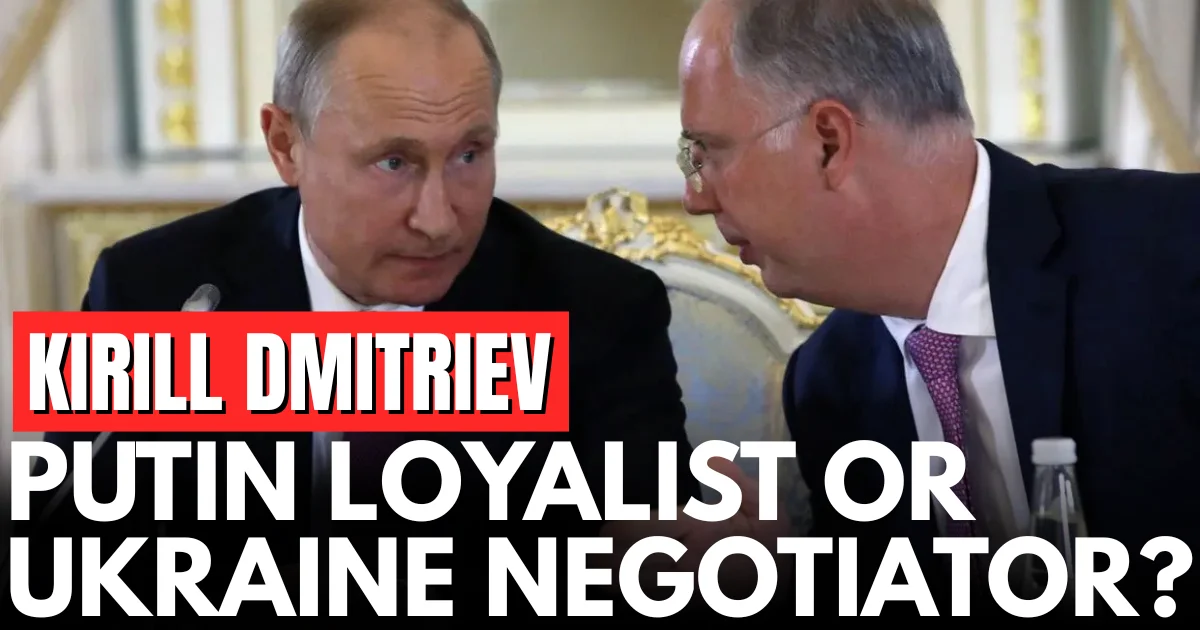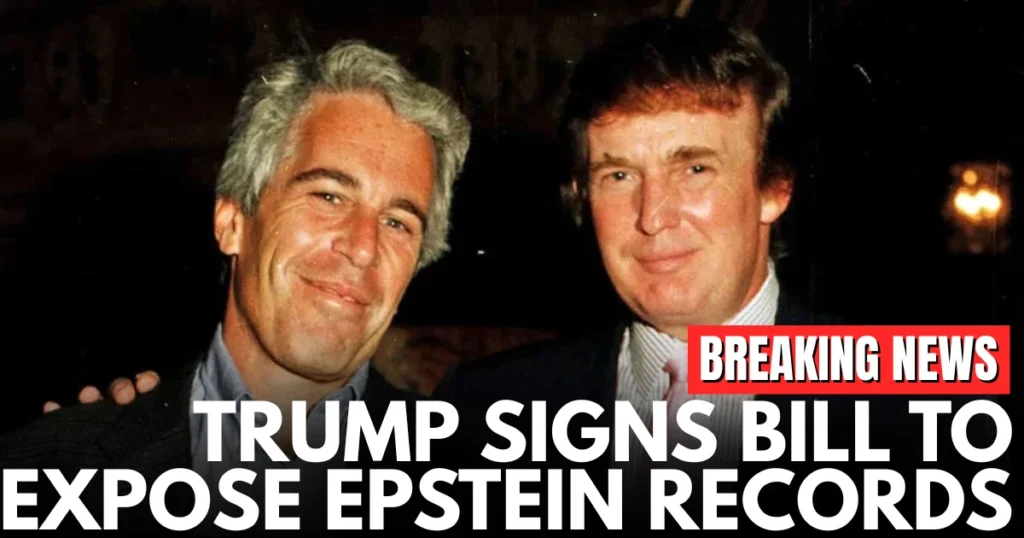Russian envoy Kirill Dmitriev raises debate: propagandist for Putin or potential key to Ukraine peace? Diplomatic role, international perspectives analyzed.
Table of Contents
Kirill Dmitriev: Examining the Debate Over Putin Propagandist or Potential Ukraine Peace Facilitator
Russian envoy Kirill Dmitriev occupies a controversial position in international affairs, with Western governments and analysts debating whether he represents genuine diplomatic channel for Ukraine peace negotiations or primarily functions as a propaganda mouthpiece for the Putin government. This question carries significant implications for diplomatic efforts and international relations.
Understanding Dmitriev’s actual role requires examining his background, public statements, international perceptions, and the broader context of Russia-Ukraine diplomatic possibilities. For American policymakers and international observers, assessing diplomatic intermediaries’ credibility affects strategic decision-making about engagement approaches.
Who is Kirill Dmitriev
Dmitriev serves as CEO of the Russian Direct Investment Fund (RDIF), Russia’s sovereign wealth fund, while also functioning as an unofficial diplomatic representative in various international contexts.
Professional background:
Dmitriev received education at prestigious Western institutions including Harvard Business School, establishing connections with international business and political communities. This Western education background distinguishes him from many Russian officials.
His RDIF leadership involves managing billions in sovereign investments and facilitating international business partnerships. The fund’s activities create natural diplomatic interaction opportunities with foreign governments and businesses.
Personal relationships with influential figures across multiple countries position Dmitriev as a potential communication channel. Such connections often prove valuable in diplomatic contexts requiring unofficial discussions.
Official and unofficial roles:
While not formally serving as Foreign Ministry diplomat, Dmitriev frequently engages in discussions touching on geopolitical matters. These unofficial diplomatic activities create ambiguity about his authority and credibility.
He maintains close relationships with Russian leadership including direct access to President Putin. Proximity to power suggests ability to convey messages accurately though doesn’t necessarily indicate independent authority.
The Propagandist Characterization
Western critics argue that Dmitriev primarily advances Russian government narratives rather than facilitating genuine diplomatic progress.
Evidence supporting propagandist view:
Public statements consistently align with official Kremlin positions on Ukraine and international affairs. Critics note that Dmitriev rarely expresses views differing from government lines.
Media appearances on international platforms often involve defending Russian actions and policies. These communications follow patterns characteristic of state messaging rather than independent diplomatic mediation.
Past predictions and assurances that proved inaccurate or misleading damaged credibility. Western officials cite instances where Dmitriev’s statements contradicted subsequent Russian actions.
Financial interests through RDIF potentially align with Russian government objectives creating conflicts of interest. Sovereign wealth fund success depends on government favor and policy alignment.
Western skepticism factors:
Intelligence assessments from various Western countries reportedly categorize Dmitriev as primarily serving propaganda functions. Government analysts distinguish between genuine diplomatic channels and messaging operations.
Sanctions imposed by the United States and other nations reflect determinations that Dmitriev enables Russian government actions. Economic restrictions signal serious credibility concerns.
Historical precedents involving Soviet-era diplomacy create suspicion about Russian government representatives’ autonomy and truthfulness. Past experiences inform current skepticism about diplomatic intermediaries.
The Peace Facilitator Perspective
Alternative viewpoints suggest that Dmitriev could serve useful functions in diplomatic processes despite propaganda concerns.
Arguments for engagement:
Established international relationships provide communication channels that might prove valuable even if messages contain propaganda elements. Diplomatic engagement often involves interacting with less-than-ideal intermediaries.
Western education and business background enable Dmitriev to understand and communicate with international counterparts more effectively than some Russian officials. Cultural bridge-building serves diplomatic purposes.
Direct access to Putin means messages conveyed through Dmitriev potentially reach decision-makers. Reliable communication channels matter enormously in diplomatic contexts.
Historical diplomatic precedents include engaging with individuals serving dual propaganda and negotiation roles. Effective diplomacy sometimes requires pragmatic engagement despite imperfect intermediaries.
Pragmatic diplomatic considerations:
Ending conflicts often requires communicating with adversary representatives regardless of propaganda activities. Perfect diplomatic purity proves impossible in real-world negotiations.
Multiple diplomatic channels including imperfect ones increase possibilities for breakthrough opportunities. Diplomatic redundancy and diversity create more options than single-channel approaches.
International Perspectives and Responses
Different countries and international actors adopt varying approaches toward Dmitriev reflecting broader strategic calculations.
United States position:
American sanctions on Dmitriev indicate official U.S. government skepticism about his role and credibility. Treasury Department designations reflect determinations that he enables sanctionable Russian activities.
However, intelligence and diplomatic communities maintain awareness of all potential communication channels. Even sanctioned individuals sometimes play roles in unofficial diplomatic contacts.
European Union approaches:
European nations display somewhat varied responses with some maintaining greater willingness to engage than others. Diplomatic strategy differences among EU members reflect diverse historical relationships and current interests.
Sanctions coordination with the United States demonstrates shared concerns while allowing room for tactical diplomatic flexibility. European governments balance multiple considerations in Russia policy.
Ukrainian government views:
Kyiv’s perspective on engaging with Russian intermediaries like Dmitriev necessarily prioritizes Ukrainian interests and sovereignty. Ukrainian officials evaluate diplomatic channels based on effectiveness serving their objectives.
Past negotiation experiences inform Ukrainian assessments about which Russian representatives can deliver meaningful results. Credibility judgments reflect direct interaction history.
Diplomatic Channels in Conflict Contexts
Understanding Dmitriev’s potential role requires broader context about how diplomatic communication functions during international conflicts.
Official versus unofficial channels:
Formal diplomatic communications occur through established government representatives and embassies. These official channels follow protocols and create documented records.
Unofficial or “Track Two” diplomacy involves non-governmental intermediaries who can explore possibilities without committing governments. Such channels offer flexibility and deniability.
Dmitriev’s position represents ambiguous middle ground with quasi-official status but lacking formal diplomatic credentials. This ambiguity creates both opportunities and credibility challenges.
Historical precedents:
Cold War diplomacy involved numerous back-channel communications through individuals with varying degrees of official status. Some proved crucial to preventing escalation while others served primarily propaganda purposes.
Distinguishing productive diplomatic channels from propaganda operations requires careful assessment and often becomes clear only retrospectively. Real-time evaluation involves significant uncertainty.
Assessing Credibility and Trustworthiness
Evaluating whether Dmitriev could facilitate meaningful peace progress requires analyzing multiple credibility factors.
Credibility assessment criteria:
Authority to commit: Does Dmitriev possess actual power to make binding commitments or merely convey messages? Representatives without decision authority offer limited diplomatic value.
Track record accuracy: Have previous statements and predictions proven reliable or consistently misleading? Historical accuracy informs future credibility assessments.
Independence versus control: Does Dmitriev exercise independent judgment or simply relay official positions without deviation? Genuine intermediaries need some autonomy.
Alignment of interests: Do Dmitriev’s personal and professional interests align with peace outcomes or continued conflict? Motivation analysis helps predict behavior.
Verification mechanisms:
Effective diplomatic engagement with potentially unreliable sources requires robust verification of claims and commitments. Trust-but-verify approaches enable limited engagement while protecting against manipulation.
Multiple information sources help cross-check representations made through particular channels. Diplomatic intelligence gathering confirms or contradicts specific claims.
Implications for Peace Process Possibilities
The debate about Dmitriev’s role reflects broader questions about pathways to Ukraine conflict resolution.
Peace negotiation challenges:
Any eventual diplomatic resolution requires communication between parties currently engaged in armed conflict. Identifying credible intermediaries who can facilitate productive discussions remains difficult.
Mutual distrust between Ukraine and Russia complicates finding acceptable mediators and communication channels. Both sides view most potential intermediaries with suspicion.
International stakeholders including the United States and European Union possess their own interests and preferred approaches. Coordinating diplomatic strategies among multiple parties adds complexity.
Diplomatic realism considerations:
Peace processes often involve engaging with problematic intermediaries as pragmatic necessity. Ideal diplomatic conditions rarely exist in conflict contexts.
However, engagement doesn’t require accepting propaganda uncritically or abandoning skepticism. Sophisticated diplomatic approaches combine limited engagement with robust verification.
What This Means for U.S. Foreign Policy
American policymakers must navigate complex calculations about diplomatic engagement approaches toward Russia.
Strategic considerations:
Maintaining communication channels even with sanctioned or distrusted individuals might serve limited intelligence and diplomatic purposes. Complete communication blackout carries its own risks.
However, engagement creates risks of legitimizing propaganda or being manipulated. Balancing potential benefits against manipulation dangers requires careful judgment.
Coordination with allies including Ukraine ensures that any diplomatic contacts serve collective interests rather than undermining unified approaches. Allied cohesion represents crucial strategic asset.
Policy debates:
Foreign policy experts debate optimal approaches with some advocating maximal diplomatic isolation and others supporting maintaining diverse communication channels. These strategic disagreements reflect genuine uncertainty about best practices.
Both positions acknowledge that individuals like Dmitriev present complex challenges requiring nuanced responses. Simplistic categorical approaches either engaging or ignoring prove insufficient.
FAQ SECTION
1. Who is Kirill Dmitriev and what is his role?
Kirill Dmitriev serves as CEO of Russia’s sovereign wealth fund (RDIF) while also functioning as an unofficial diplomatic representative in various international contexts. Western-educated at Harvard Business School, he maintains relationships with international business and political communities. While not a formal Foreign Ministry diplomat, Dmitriev frequently engages in discussions touching on geopolitical matters and maintains close relationships with Russian leadership including direct access to President Putin.
2. Why do some consider him a Putin propagandist?
Critics argue that Dmitriev’s public statements consistently align with official Kremlin positions, that he defends Russian actions through international media appearances following state messaging patterns, and that past predictions proved inaccurate or misleading. Western intelligence assessments reportedly categorize him as primarily serving propaganda functions, and U.S. sanctions reflect determinations that he enables Russian government actions. His financial interests through RDIF potentially align with government objectives creating credibility concerns.
3. Why might he be useful for peace negotiations despite propaganda concerns?
Supporters of engagement note that Dmitriev’s established international relationships provide communication channels, his Western education enables effective communication with counterparts, and his direct Putin access means messages potentially reach decision-makers. Historical diplomatic precedents include engaging with individuals serving dual propaganda and negotiation roles. Pragmatically, ending conflicts often requires communicating with adversary representatives regardless of propaganda activities, and multiple diplomatic channels increase breakthrough possibilities.
4. How do the U.S. and other countries view Dmitriev?
The United States imposed sanctions on Dmitriev indicating official skepticism about his credibility, though intelligence communities maintain awareness of all potential communication channels. European nations display somewhat varied responses with different levels of engagement willingness. Ukrainian government views necessarily prioritize their own interests and sovereignty, evaluating diplomatic channels based on effectiveness. These varied international perspectives reflect different strategic calculations and historical experiences.
5. Can someone be both a propagandist and a peace facilitator?
This represents the central question surrounding Dmitriev’s role. Diplomatic history includes precedents of individuals serving dual propaganda and negotiation functions, particularly during conflicts when pure diplomatic channels prove insufficient. Effective diplomacy sometimes requires pragmatic engagement with imperfect intermediaries while maintaining robust verification mechanisms. However, engagement doesn’t require accepting propaganda uncritically or abandoning skepticism. Sophisticated diplomatic approaches combine limited engagement with verification and allied coordination.
CONCLUSION
The debate about whether Kirill Dmitriev functions primarily as Putin propagandist or could facilitate Ukraine peace negotiations reflects broader diplomatic challenges in international conflict resolution. Both characterizations contain elements of truth, with Dmitriev clearly advancing Russian government positions while also maintaining international relationships that could theoretically serve communication purposes.
For American policymakers and international observers, this question matters because it affects strategic decisions about diplomatic engagement approaches. Completely dismissing all potential communication channels carries risks, but uncritical engagement creates manipulation dangers.
The reality likely involves complex middle ground where Dmitriev serves primarily propaganda functions while potentially offering limited utility as communication channel under specific circumstances with appropriate verification mechanisms. Navigating such ambiguous situations represents core diplomatic challenges.
As the Ukraine conflict continues, questions about which Russian representatives merit engagement and under what conditions will persist. Resolving these questions requires balancing pragmatic diplomatic flexibility with appropriate skepticism and robust coordination with allies including Ukraine.
This article provides analytical coverage of diplomatic complexities and does not constitute policy recommendations. International relations involve nuanced judgments requiring comprehensive information and strategic expertise.

